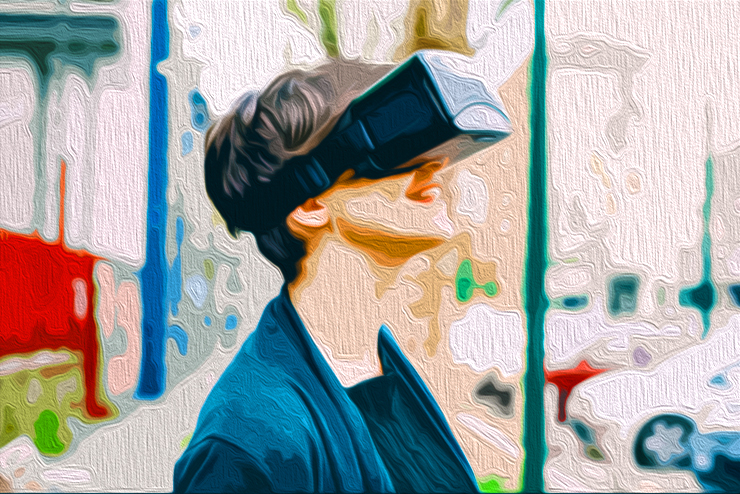
Today’s marketing world is much more dynamic than it was a decade ago. Amidst all the transformations, the ongoing debate between paid media vs. organic media continues to intrigue marketers. Both approaches present distinct advantages and challenges, but determining which one suits your brand best is essential.
Understanding Paid Media
Paid media encompasses marketing efforts where brands invest in visibility. This includes avenues such as Facebook ads, Google AdWords, sponsored Instagram posts, and more. It is a strategic investment that positions your content in front of targeted audiences based on factors like demographics, keywords, or user behaviors.
Exploring Organic Media
Organic media encompasses all unpaid content created to enhance online visibility. This includes blog posts, social media updates, and SEO-driven web pages. Organic content is crafted to be discovered naturally by your audience without the need for paid placement.
Paid Media vs. Organic Media: Benefits Breakdown
Speed vs. Longevity: Paid media yields quick results, while organic media fosters long-term value gradually.
Cost-Effectiveness: Paid media demands consistent investment, whereas organic media is devoid of ongoing costs.
Targeting vs. Broad Appeal: Paid media facilitates precise targeting, while organic media attracts more engaged audiences with time.
The Perfect Duo: Combining Paid and Organic Media
Integrating paid and organic media can yield superior results. Paid media can amplify organic content to a wider audience, while insights from paid campaigns can refine your organic strategy.
Measuring Success
Key metrics for paid media include cost-per-click (CPC) and return on ad spend (ROAS), indicating performance. For organic media, metrics like organic traffic and search engine rankings serve as pivotal success indicators.
Finding Your Balance
Striking the right balance between paid and organic media is pivotal for marketing success. Many brands opt for a hybrid approach to achieve both short-term results and sustainable growth.
Frequently Asked Questions
What is eCommerce marketing?
Ecommerce marketing entails conducting business transactions online, involving the sale of products over the internet. This encompasses purchasing goods from companies and selling them online, whether as an individual vendor or setting up a business for profit.
Creating a thriving eCommerce site involves selecting products for sale, sourcing suppliers, setting up a website, and promoting it through various channels like email, social media, search engines, and mobile apps.
What are the four types of marketing?
Marketing can be categorized into four main types: Direct Mail Marketing, Public Relations, Digital Marketing, and Social Media Marketing. Each type serves a distinct purpose and can be effectively combined to achieve marketing objectives.
What are the 7 Steps of Internet Marketing Strategy?
Internet marketing strategies enable businesses to achieve their goals using online platforms. The seven essential steps encompass planning, research, implementation, monitoring, optimization, evaluation, and analysis. Each step is crucial for effective internet marketing and should be regularly executed.
Statistics
- 81% of brands engage in affiliate marketing, with eCommerce sites being prime candidates. (blog.hubspot.com)
- A PartnerPath poll revealed that co-marketed ads influence 68% of consumers in making a purchase decision before interacting with a salesperson. (influencermarketinghub.com)
- In a recent poll, 14% of older Gen Z individuals made a purchase based on an influencer's recommendation in the past six months. (influencermarketinghub.com)
- eMarketer predicts a 36% growth in digital marketing from 2020 to 2022, constituting 54% of marketing budgets. (marketinginsidergroup.com)
- Experts recommend sharing promotional content sparingly (20%) and focusing on valuable content (80%) for optimal engagement. (marketinginsidergroup.com)
External Links
hubspot.com
- YouTube Marketing: The Ultimate Guide
- Chatbot Builder Software for Free
neilpatel.com
- How to Use Search Engine Optimization to Build Your Brand
- Marketing Automation: Examples & Tools (2022)
youtube.com
- YouTube
moz.com
- SEO Learning Center Moz
- [Case Studies] How Moz ranked #1 for a high-volume Keyword in 3 Months or Less
How To
How can I assess the success of my brand efforts?
Directly engaging with customers is a reliable method for evaluating brand success. Request feedback, identify strengths, address complaints, and implement strategies for enhancement. Surveys on social media and reviews on platforms can also provide valuable insights into brand perception.
Implementing consistency, multichannel marketing, offering superior customer service, developing a comprehensive brand image, gathering customer feedback, and testing different messaging strategies are key steps for improving brand performance.
Additionally, setting strategic goals, measuring outcomes, adapting based on results, staying innovative, and embracing technological advancements are vital for sustained brand growth and success.
Frequently Asked Questions
What are some of the best digital marketing techniques I can do from my home?
Digital marketing is a cost-effective way to reach customers that spend most of their time online. You can also generate leads through digital marketing.
You can use social media platforms like Facebook, Twitter, and LinkedIn to promote your brand. Email marketing tools can be used to send emails to prospects and clients.
There are many other ways you can market your product or service using digital mediums.
These channels can be used effectively if you have the right knowledge.
Social Media Marketing is a great way to promote your business online. It's a great way to build brand awareness and generate leads. Here are five methods to leverage social media marketing to increase your business.
- Create a Facebook Fanpage – This allows customers to interact directly via Facebook. You can upload photos, videos and other files.
- Twitter Promote Your Business – Twitter offers a great way to share information and connect people. To increase visibility, use hashtags
- Post Videos on YouTube – Uploading videos is very popular because many people enjoy watching them. If they like what is shown, they may click to visit you website.
- Host Live Event – Hosting live events will allow you to meet face to face with potential clients. They can ask about your products and services.
- Respond to Customer Reviews – Positive reviews help build trust with your clients and encourage repeat purchases. Respond quickly to any negative comments.
What is the difference between marketing and advertising?
Advertising is a form or communication that promotes products, brands, and services. Advertising is usually accompanied by a clear call for action, such “Buy Now!” Or “Click Here.”
Marketing is, on the contrary, a way to communicate your company’s mission, vision and values to potential clients. Marketing is also a way to establish relationships with potential customers and current customers.
If you sell shoes online, for example, marketing can be used to tell the story of who you are and what your offer. Talk about your philosophy, history, and commitment towards quality. Perhaps you could give testimonials from happy customers. You could even organize an event in which you give away shoes for free to encourage people to visit you website.
Marketing is, in short, about telling stories. Advertising is about selling goods.
Statistics
- Meanwhile, a PartnerPath poll found that co-marketed ads help 68% of consumers arrive at a buying decision before even speaking to a salesperson. (influencermarketinghub.com)
- Many experts recommend you share 20% of your promotional content and 80% of other valuable content you find. (marketinginsidergroup.com)
- Companies that use personalization are seeing revenue increases ranging from 6-10%. (blog.hubspot.com)
- Today, 81% of brands around the world have affiliate programs. (influencermarketinghub.com)
- From 2020 to 2022, eMarketer predicts that digital marketing will grow by 36% and take up 54% of marketing budgets! (marketinginsidergroup.com)
External Links
blog.hubspot.com
youtube.com
neilpatel.com
statista.com
How To
How to get your Google Digital Marketing/E-commerce Professional Certification
Google offers a free online course, Search Engine Optimization: Beginners. This course is a great way to learn how you can optimize your website for search engines such as google.
The course covers essential SEO topics such as page titles, meta tags, internal linking, and site speed. These lessons will improve your website's performance if it already exists.
A certificate of completion will be issued to you after the course is completed. This certificate is valid two years and can be used to add “SEO”, to your LinkedIn profile.
When you complete the course, you will also be eligible for 10 CPE Credits. These credits will be accepted by most colleges or universities.
Google Certified Partner (GCP), a paid certification program, is also offered by Google. Candidates must pass a rigorous exam, and provide proof of their experience to become GCP certified.
————————————————————————————————————————————–
By: 17269
Title: The Ultimate Guide to Paid Media vs. Organic Media in Today’s Marketing World
Sourced From: internetlib.org/the-ultimate-guide-to-paid-media-vs-organic-media-in-todays-marketing-world/
Published Date: 10/7/2024 4:03:09 PM
